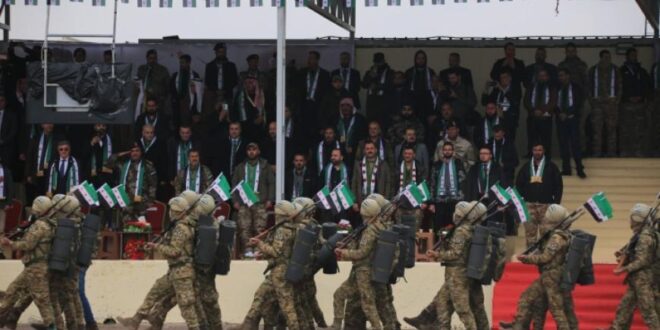Regarding the reopening of the Abu al-Zindeen crossing, the Turkish intelligence service representative clarified that the decision was purely commercial, unrelated to any political agenda, Damas Post writes.
A significant meeting of Syrian opposition forces, organized by the Turkish intelligence service and attended by representatives from the Turkish Foreign Ministry, took place on Tuesday in Gaziantep province.
Attendees included representatives from the National Coalition, the Syrian Interim Government, the Syrian Negotiation Commission, the Tribal Council, and leaders of the National Army. The meeting lasted four hours, revealing clear divisions among the opposition forces. While the Turkish side refrained from playing an active role during the meeting, a Turkish Foreign Ministry representative emphasized Turkey’s continued support for the Syrian opposition during his speech.
Regarding the reopening of the Abu al-Zindeen crossing, the Turkish intelligence service representative clarified that the decision was purely commercial, unrelated to any political agenda, and would not be imposed on anyone. He also dismissed concerns about the potential economic revival of the Syrian regime as unfounded, noting that trade between factions and Assad regime-controlled areas, including smuggling, had never ceased.
Hadi al-Bahra, head of the Syrian National Coalition, acknowledged the recent civilian protests, attributing them to widespread fears among Syrians regarding their security. He affirmed that these protests are a natural and legitimate expression of these concerns and should not be met with violence or be associated with personal agendas.
Abdul Rahman Mustafa, head of the Syrian Interim Government, presented a comprehensive report on the achievements in northern Syria, highlighting the work of various ministries and subtly criticizing certain factions for obstructing government efforts.
Saif Boulad Abu Bakr, commander of the Hamza Division, and Muhammad al-Jassem (Abu Amsha), commander of the Sultan Suleiman Shah Division, both praised the Syrian Interim Government’s efforts in northern Syria. However, leaders of the Liberation and Construction Movement and the Levant Front expressed differing views, seeing the Joint Force as a new alliance favouring the Syrian Interim Government leader.
 Eurasia Press & News
Eurasia Press & News




